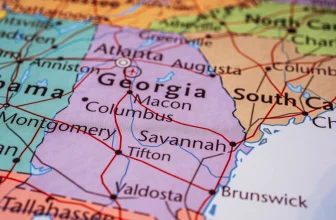
There’s plenty happening in the world of cannabis and alcohol — far too much to take in all at once! Below are seven of the most relevant news stories for the connoisseur of all things cannabis, CBD, wine, beer, and spirits:
1. Local Choice Spirits announces the first-ever Blockchain-based alcohol sales
It was inevitable, but it’s finally happened: alcohol is now being sold on the blockchain. Local Choice Spirits will be launching the Barrel Finance (BarrelFi) platform to make this happen. Local Choice Spirits was destined to be the trendsetters in this realm. The female/family-owned distillery has made a name for itself as first-wave enthusiasts who have no problem disrupting age-old conventions with cutting-edge innovations. This move officially puts alcohol into the realm of Web 3.0, an area it had yet to breach. This allows brands and producers to access a global platform to gain financial support for projects and to sell directly to consumers. It will be interesting to watch how this shift affects the market interaction. This will be released August on Local Choice’s web and stores. The Barrel Finance (BarrelFi) platform will make history. Read more here.
2. PA’s medical marijuana industry has seen a boom — one that might put legalization in the express lane
Pennsylvanians who have hungered for legalized marijuana despite sluggish progress have reason to celebrate. Pennsylvania’s legal medical market has seen the better part of a million people sign up since 2016, with more than 630,000 in total. The total amount of money generated has been $3.4 billion since 2018. This indicates that a large number of people are catching on to the soothing effects of marijuana for various medical conditions. Legislators seeing the tax revenue from these sales are unlikely to resist considering how much tax revenue would be available from recreational marijuana sales.
3. New Mexico has finalized rules for cannabis production
On Tuesday, New Mexico finally released its official rules for cannabis production in the state. These rules outline specific guidelines for producers of adult-use marijuana, including how many each producer is allowed to grow: a maximum of 10,000 plants per licensed grower. This rule may help prevent any single grower from accumulating too much market share in the state. The Cannabis Control Division is set to begin accepting applications for a recreational marijuana producer’s license by the end of this week. However, because the rules for retailers are not yet complete and are scheduled to be finalized by early 2022, cannabis sales cannot go into effect until April 1.
4. Even in states where weed is legal, banking remains a challenge
Banking has proven a challenge for cannabis businesses, as even when operating in states that have legalized sales, they still must contend with the fact that marijuana sales are federally illegal. The pool of lenders available to cannabusinesses is limited, and borrowing costs are 600 basis points higher than for non-marijuana businesses. Tax rates remain another hurdle — the Internal Revenue Service, a federal organization, still excludes businesses that sell marijuana from certain write-offs like rent and salaries. This can make it harder for newcomers to get a seat at the table.
5. California has earned in excess of $1B in marijuana tax revenue for fiscal year 2020-2021
The Golden State has earned $1,031,879,926 in tax revenue for 2020-2021, a massive gain from its previous year. That means California has collected a total of $2,067,681,715 in taxes since 2018 when it officially legalized recreational weed sales. Quarters 1 and 2 of 2021 each produced between 25% and 45% more than their respective quarters in 2020. California will be spending its marijuana gains on covering the costs of its regulation, after which 20% will go toward public safety, 20% toward environmental programs, and the remaining 60% will go to anti-drug programs aimed at kids.
6. Idaho Supreme Court has struck down a law that would have tightened restrictions on petitioning for ballot initiatives.
Marijuana activists in Idaho are relieved that the state’s Supreme Court has removed what could have been a major roadblock to legalization. The bill, signed in April by the governor, mandated that any petitions would have had to take signatures from over 6% of registered voters in all of the state’s 36 legislative districts — as opposed to the 18 districts previously required. The move would have presented a significant challenge to legalizing cannabis, which activists strove to have in front of voters in 2022.






